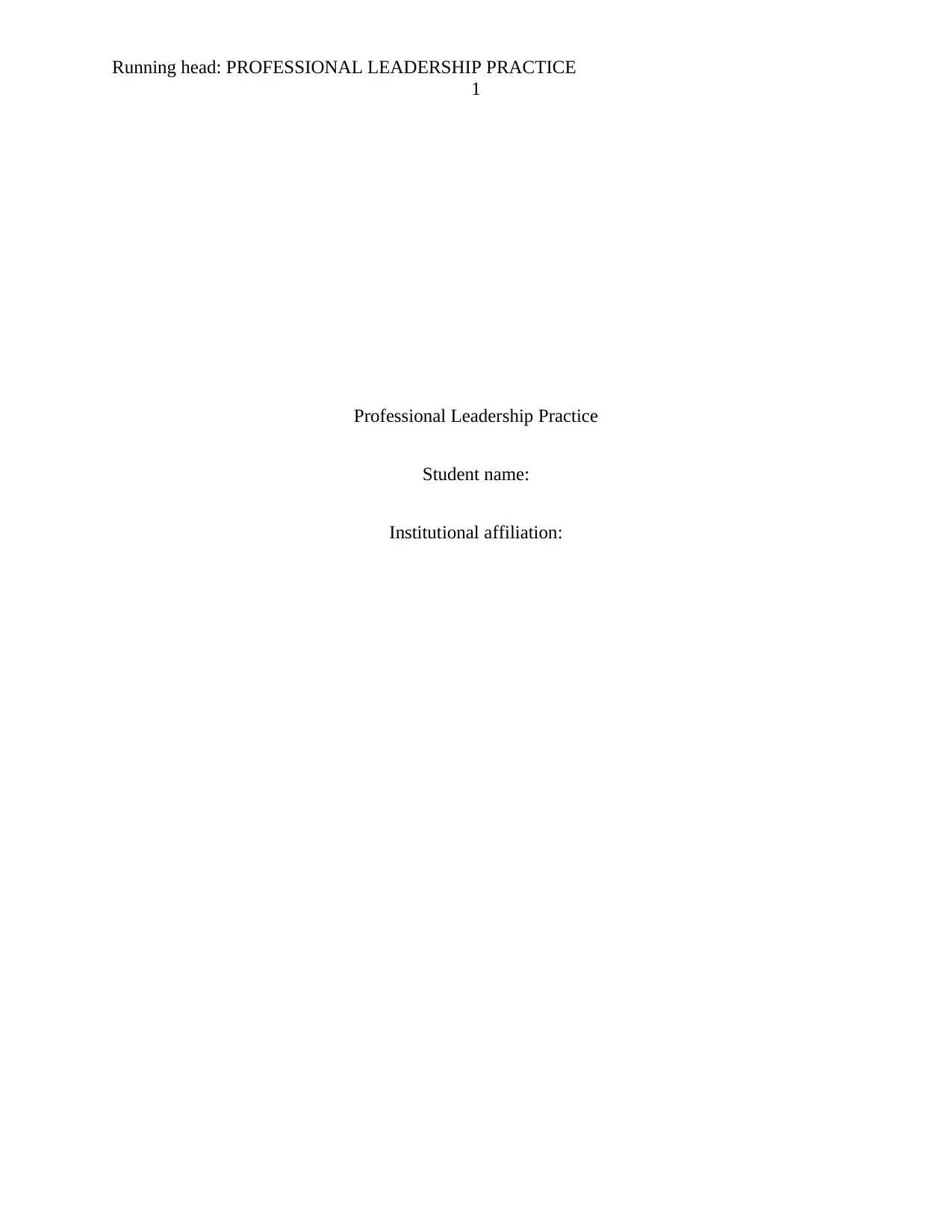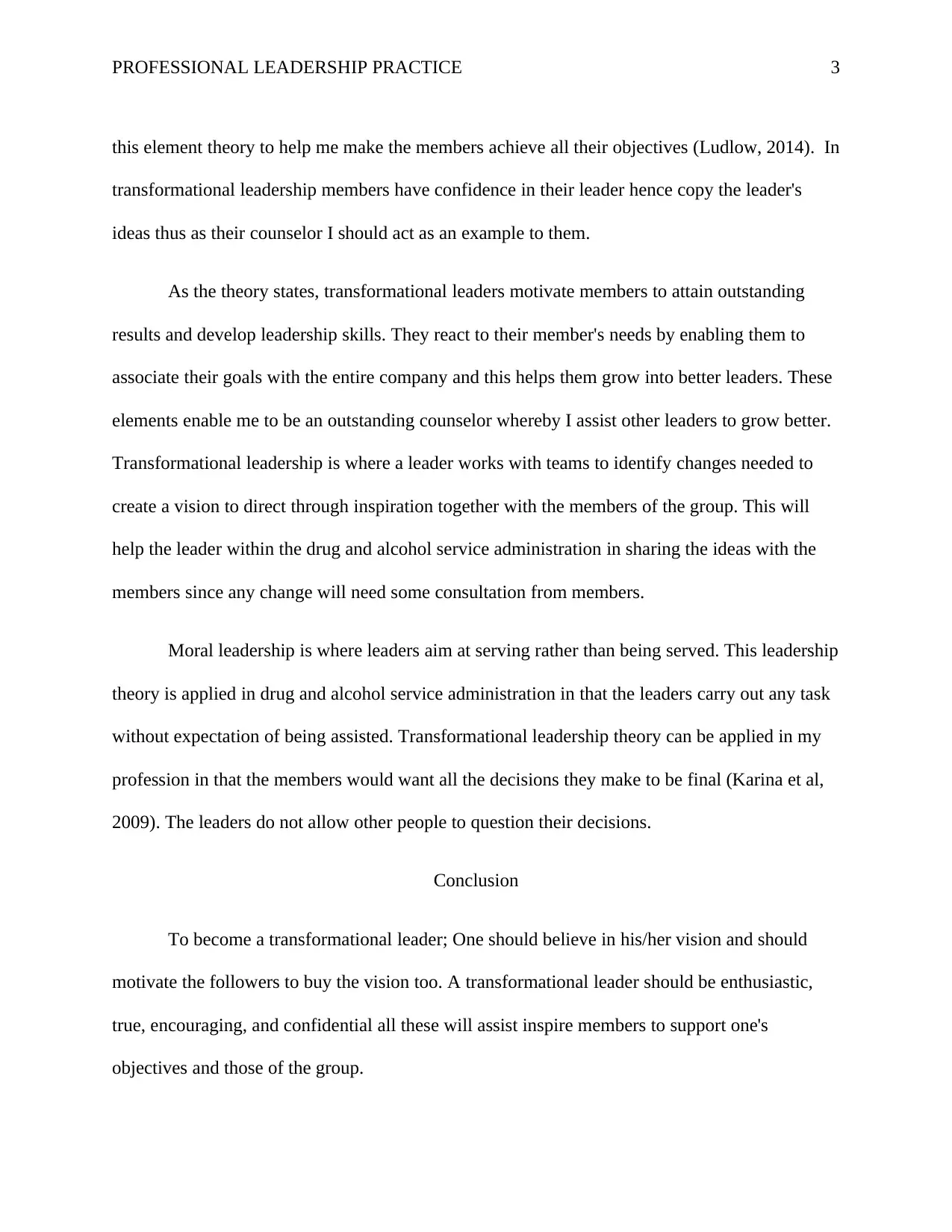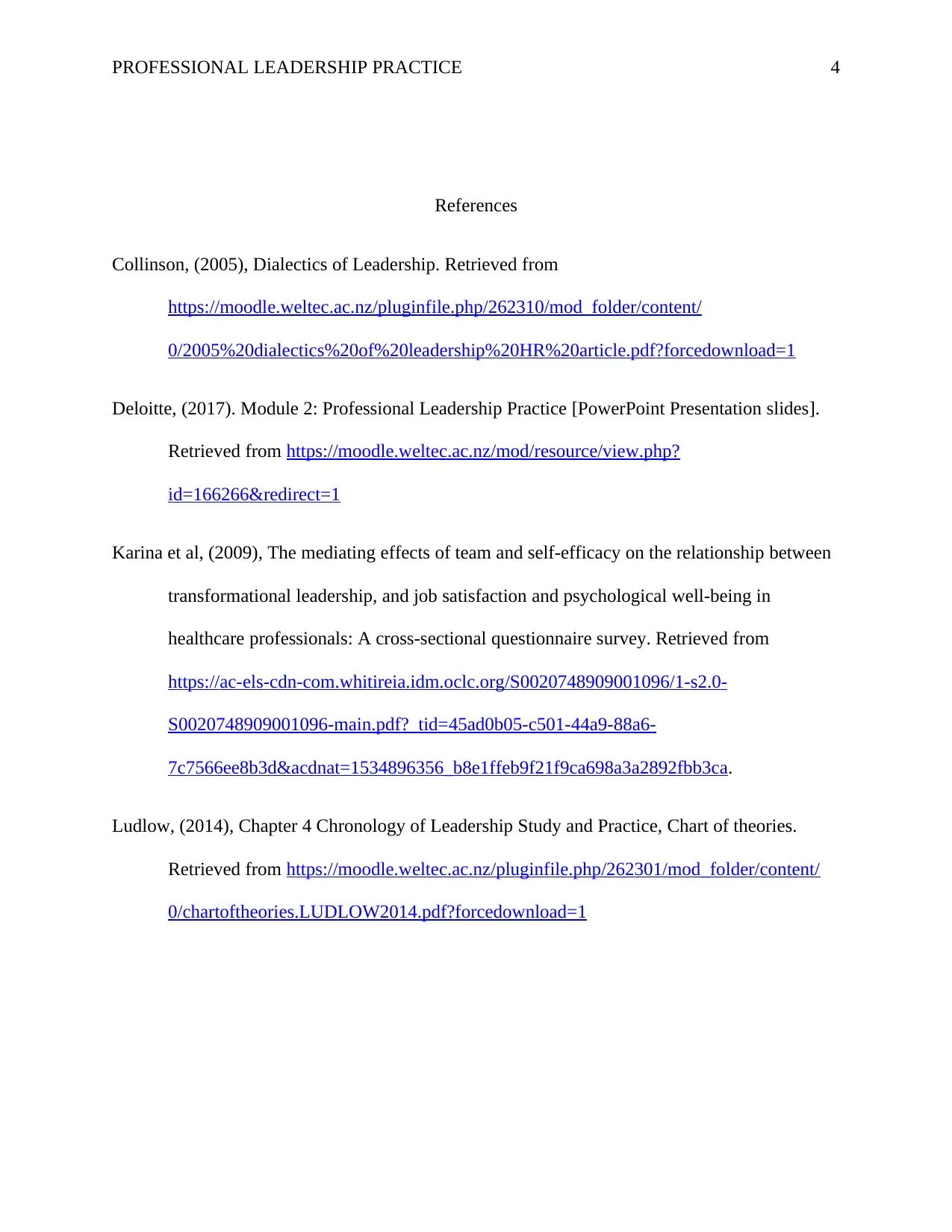Transformational Leadership Theory in Professional Practice Context
VerifiedAdded on 2023/06/04
|4
|733
|400
Essay
AI Summary
This essay delves into the application of transformational leadership theory within a professional counseling context, specifically focusing on a counselor working in drug and alcohol services. It highlights the importance of motivating and supporting individuals to achieve their objectives, emphasizing the need for open communication, creativity, and a clear vision. The essay also discusses how a transformational leader can inspire confidence and foster leadership skills in others, ultimately enhancing the counselor's ability to assist clients in their recovery and personal growth. The assignment also touches on moral leadership and its relevance in the field, where leaders prioritize serving others. The assignment concludes by emphasizing the importance of believing in one's vision and motivating others to support it to become a transformational leader.
1 out of 4










![[object Object]](/_next/static/media/star-bottom.7253800d.svg)